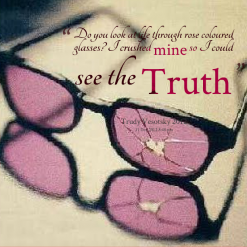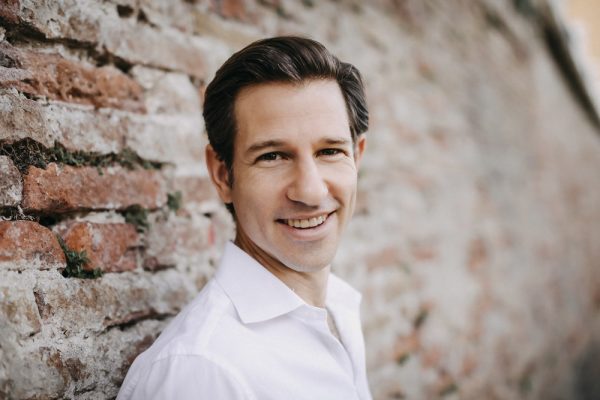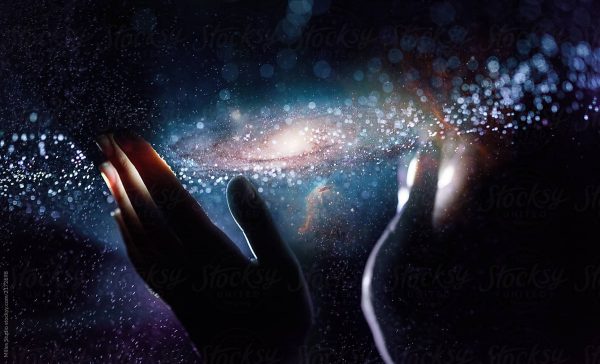After a drizzly, rainy weekend camping in the Texas Hill Country, the sun is now out. Dammit. Oh well, we toured three wineries and after a while weren’t too worried about sobering things like bad weather. It’s funny when you tour these wineries. By the time you get to your last one around when they all close, the people at the tasting bar are guffawing and carrying on like mad hatters. I guess those are the ones (like me) who don’t spit the wine out after swishing it around their mouths. We took my son, Lukas, with us, and he had a great time. He’s very interested in learning about new things, wine included, and impressed a few of the people who work at the wineries with his budding knowledge. They don’t often see that in 22 year olds.
I can’t remember if I told you this, but Channeling Erik is now mobile friendly so be sure to download it to the homepage of your iPad, smart phone, etc.
Here’s a message of hope.
Me: Let’s talk about hope. Some people have a problem feeling hope. They feel hopeless. What’s behind that? And then we’ll talk about the purpose and the solution.
Erik: Why are some people afraid to hope?
Me: Mm hm. Maybe they don’t how to feel hope.
Erik: Well we don’t come into this world—think about little kids. Very rarely do you see a child come into this world without an infinite amount of hope, and that’s expressed in how they act. They run around playing and laughing. They’re carefree, all that shit. Then over time, in some instances, life just kind of wears them down.
Me: Yeah, the flame starts to get snuffed out more and more. Why is that? What causes that to happen?
Erik: It comes down to how we react to something, but that, to me—let’s just leave it at that because that’s kind of heartless. If you’re a seven or eight year old, you don’t know because you haven’t’ lived long enough, but that’s what it all comes down to, and that’s what you go through during your life review. But everything is about a choice. That’s part of the lesson. It’s about uncertainty. Hope starts to wear away because we start to react to things differently. We always want things that are certain. Let’s say you have this candy bar, and you reach for it and go, “Oh, I want to eat that.” Then all of a sudden you go to reach for it, and somebody just snatches is away. After a while you start to doubt if you’ll ever get what you’ve dreamed for. Then you start to stop trusting life. You become afraid to have a positive outlook because you’re afraid it’ll be short-lived, and you don’t want to get hurt. You think it’s better to stay in that horrible uncomfortable place because at least you know that it’ll always be there. At least you know that it’s certain. You don’t want to go from positive to negative to positive to negative.
Me: So it’s better to not have hope and then be disappointed.
Erik: Yeah, because it’s a loss. It’s all about a fear of loss. In the physical word, for humans now, it’s so much easier to be in a dense, negative space because that’s what’s so prevalent now. It’s easier to maintain that than to maintain light, airy things. It’s more likely that the light, airy thing will blow away with the wind, and you have to go chasing it again. It’s a constant chase, but it’s so easy to just stay in place, stay in the negativity.
Me: What’s the purpose for a lack of hope? We now know what causes it, but is there a spiritual purpose for it?
Erik: The bottom line, as far as I can tell, is it’s to learn how to accept change. That’s the only way you’ll realize that it’s really easy to grasp onto hope, to know that whatever’s going on now will change as long as you maintain that acceptance of change. It’s hard for the human mind to accept this because it’s wired to want it to stay the same. The mind gets used to having a certain routine, seeing certain people in their lives, having certain experiences, and the slightest little thing that fucks that all up—think about when someone faces financial trouble or loses their job, then they end up going off the rails into this downward spiral because their mind can’t accept that change.
Me: Exactly.
Erik: If we could stop for a minute and realize that that’s only coming from our brain, feeding it to the emotional part of ourselves, we’d start to take a step out of it and look at from above—not dissociate from it but seeing it from above. It’s about perspective, seeing it from a different perspective. Then we can right ourselves and get back on track.
Me: So you’re saying that one of the spiritual purposes for lack of hope is to change your perspective?
Erik: It’s about learning how to accept change and shifting your perspective help with that.
Me: Well what’s the solution?
Erik: To learn to accept change!
Robert (laughing)” Well you need to elaborate, Erik! How do you accept change?
Erik: I said that already. You have to recognize that everything is in a constant flux, and you need to put that in perspective. The moment you’re in right now isn’t going to last perpetually unless you choose for it to, and the only way to choose for it to stay in that place and become stuck is to allow yourself to stay, emotionally in the place that that experience is connected to.
Me: Ah, I see.
Erik: What have I said before? Everything starts with an emotion first, and that creates a thought, which creates a reality. That compels you to make certain choices.
Me: Sure. Let’s try to figure out a specific example so people can relate to it. I don’t know, what about the loss of hope that they’re ever going to have a decent relationship with somebody. Walk us through what that person need to know and do.
Erik: So if they’ve had a lot of failed relationships, romantic, friends or whatever?
Me: Yep.
Robert: I think I could learn a lot from this one! He’s trying to gather his thoughts. So when they lose hope because of failed relationships, how can they trust them again?
Me: Yeah.
Erik: The first thing I’d say is that you have to stop focusing on all the failures or what you see as failures, and you have to focus on what you’re learning from them. When it comes to relationships, a lot of times—and I’m going to talk a little psychology now because I was preparing for this talking to some psychologists here—you have to be aware that, and I’m talking purely from the psychological point of view—a lot of people have certain partners because maybe something happened to them as a child, the way they were raised, for instance or the way their mother or father were a certain kind of person, so then they go out and look for those same kinds of people as an adult because they’re trying to heal it.
Me: Heal what?
Erik: They’re trying to create closure on not getting how their mom or dad or brother or sister acted. Then they start to pursue that certain kind of person. It’s like subconsciously thinking, “That relationship was fucked up so I’m going to replay it and make it right, but with a different person.” This is one example. This isn’t how people choose relationships in every instance. This is just one. So they stop pursuing these people, and then the lust, dopamine, excitement starts to wear off, and that person doesn’t heal them or what happened in the past so they start to get pissed at that person and feel down on themselves because they feel like they’ve failed yet another time. They haven’t really failed. They’ve just taken a step down a certain path that’s leading them toward a certain resolution. They have to keep focusing on that. So you step back and really start asking yourself the hard questions: “What is it within me that I’m trying to heal and them putting that on somebody else? It’s not their fucking job to heal me! That’s my job.” And that’s not always easy because like when I talked about all those roads going in all sorts of directions, they don’t always know what direction to take all the time. They got to just fucking chose one and start walking. Then they need to set their intention. I talk about this all the time, Set your intention on what it is that you know you deserve. A lot of people just automatically think on a subconscious level, “I don’t deserve anything good in my life.” And they, by default, go in that direction. It’s this pity stuff. They constantly attract chaos all the fucking time.
Me: Yeah. So basically it’s not anybody’s job to solve your sense of hopelessness. You need to get down to why you feel hopeless and take care of it. Is that what you’re saying?
Erik: In it’s simplest form, yes, and there are a lot of different ways that you can do that. Sometimes what you need to do is stop and take yourself out of the equation. Spend some time with yourself, by yourself for a while. Think about what you need to address even if it means taking out a little time during the day to do it. Not everyone can isolate themselves for long periods. Be kind of like a little Buddha. Meditate on that shit, and ask yourself all those questions. Set what you might want as a goal to reach, and I wouldn’t say to pursue happiness or the perfect relationship because, Mom, the bottom line in the physical world that doesn’t exist. Anything that’s “I want only happiness,” or “I don’t want any kind of pain—physical or emotional,” that’s an unreasonable thing to ask for. You have to have some shit in your life. The reasons for that are you have to accept all different patterns of energy, right?
Me: Yeah.
Erik: But anyway, you have to ask the hard questions, set your intent and be open to accepting that it’s not always going to be rosy.
Me: But on the upside, if you have problems with relationships, the solution can be to become a monk or a nun!
Robert laughs.
Erik: Fuck yeah. That’s right! Actually, that’s a great example because maybe the people you relate to are monks or nuns. You relate to those in your tribe. That’s the case in many relationships. The bottom line is that it’s about your tribe.
Me: One last thing about hope, and I got to pee so badly, so y’all keep talking.
Complete silence. Fortunately, I’m a fast pee-er.
Me: Okay.
Erik: One great thing to take away from this when you cross over is that we learn in the physical world through contrast because we don’t have contrast here. When you’ve lived a life of constantly trying to find hope, and you’ve felt hopelessness or despair, you’re setting yourself up to be a kick ass guide so you can help someone through that same situation.
Me: Ah, of course.
Erik: The people that go through this need to know how badass they are.
Me: Yeah, you learn a lot from adversity, and you can share what you’ve learned with other people whether you’re in spirit or whether you’re a human.
Erik: That’s right.



